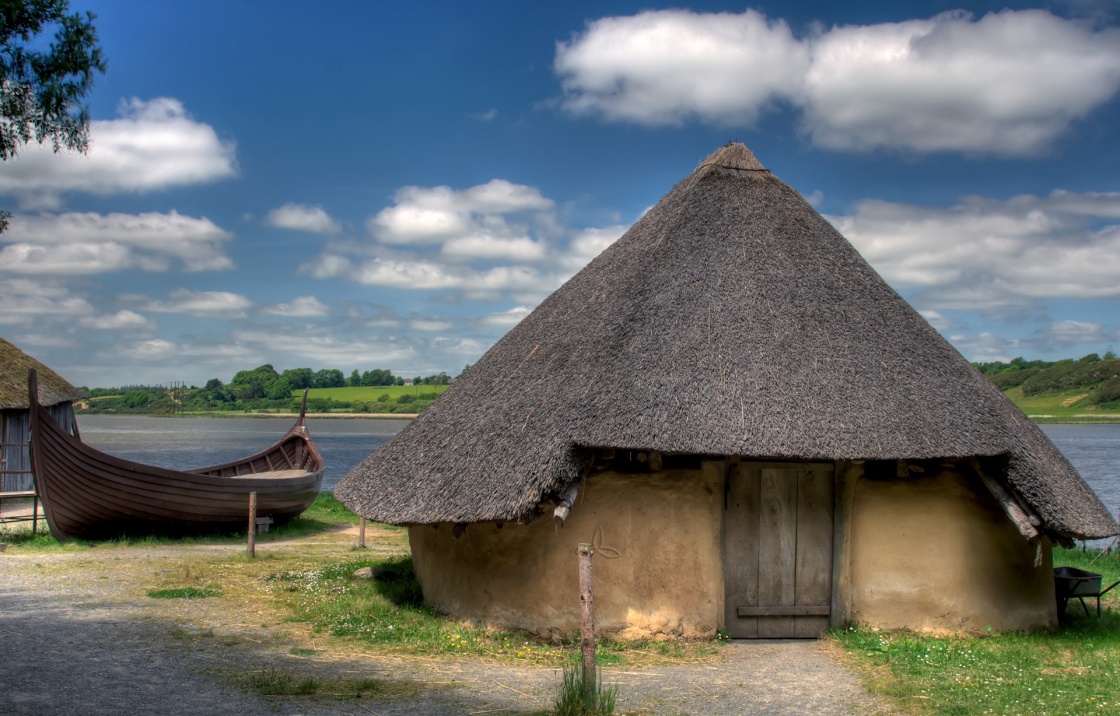That tiny island in the North Atlantic Ocean has more than seen its share of troubles and triumphs in its long history. Settled around 8000 BCE, Ireland was most likely connected to continental Europe by a land bridge. Hunters crossed the bridge looking for food and settled the island. These hunters would eventually evolve into a primitive society with a primitive religion worshipping the earth. They called themselves Celts and their religion and pagan beliefs held till the middle of the fifth century when Saint Patrick arrived and brought a new religion called Christianity. The history of Ireland took a dramatic turn as Christianity became the major religion and pagan worship forbidden.
In 800 CE, Irish history took a very violent turn. From the north came Norsemen or Vikings and they raided the island for more than a century ravaging towns and villages murdering, raping and pillaging the land. Yet the perserverance of the people overcame these raids and they survived. History can probably attribute that to the tenacity and pride of the Irish people.

 'Ancient hut in the Irish Heritage Museum in Ireland.' - Gabriela Insuratelu / Shutterstock
'Ancient hut in the Irish Heritage Museum in Ireland.' - Gabriela Insuratelu / ShutterstockNorman mercenaries came to Ireland in 1169 CE marking over 700 years of Norman and English rule. These mercenaries also brought their own form of Christianity that would eventually evolve into Protestanism bitterly dividing the Irish people. A series of military campaigns began by the English Reformation in 1534 CE and would last till 1691 CE brought on because the English questioned the loyalty of their Irish vassals. During this time there was a large immigration of English and Scottish Protestant settlers beginning centuries of sectarian conflict. An Irish Parliament was formed as a puppet of the English rulers to quell the violence. That Parliament was made up of the elite of the Irish nobility (picked by the English for their suitability) and in the beginning contained Catholics as well as Protestants until the end of the seventeenth century when all Irish Catholics (over 85% of the population) were banned from Parliament. Irish Catholics suffered severe privation and persecutons during this period.
In 1801 the Irish Parliament was disbanded and Ireland became part of the United Kingdom of Great Britain. A new Parliament was formed but still Irish Catholics were banned from serving until 1829. It was not till the 1880s that the Irish Parliamentary Party was formed with the purpose of attaining self-rule from Britain finally winning independence from Britain in 1914 then taking away that independence when World War I began.
Another major turn of events in the History of Ireland came in 1922 when the larger part of Ireland seceded from the United Kingdom forming the Irish Free State. Sporadic conflict would erupt with Britain and between the Irish Catholics and Protestants until 1948 when the Irish Free State would become the Republic of Ireland. Six north eastern counties would form Northern Ireland and remain part of the United Kingdom. Soon after this, the Irish Civil War began followed by the Irish Rebellion. The IRA (Irish Republican Army) was formed and fought Britain and Irish Protestants in a bloody brutal guerilla style warfare until peace was finally signed by the Belfast Agreement on April 10, 1998 ratified on December 2, 1998.
An uneasy peace exists today in Northern Ireland and the remnants of war are still quite visible in the streets of Belfast reminding all that only through understanding and acceptance can the Irish people prosper and continue to thrive on that tiny beautiful island called, Ireland.



